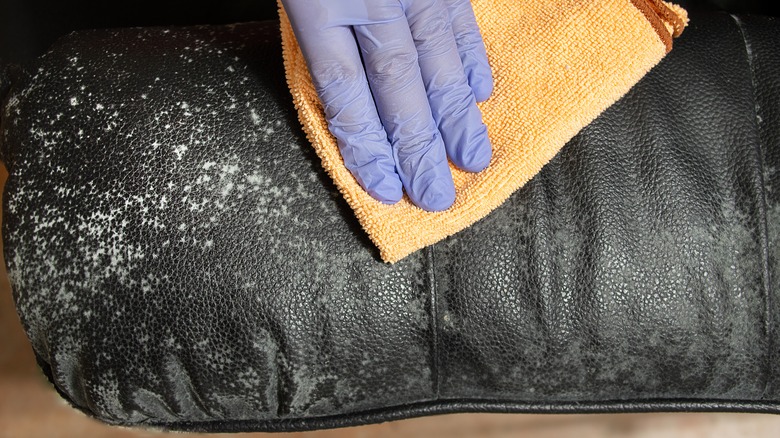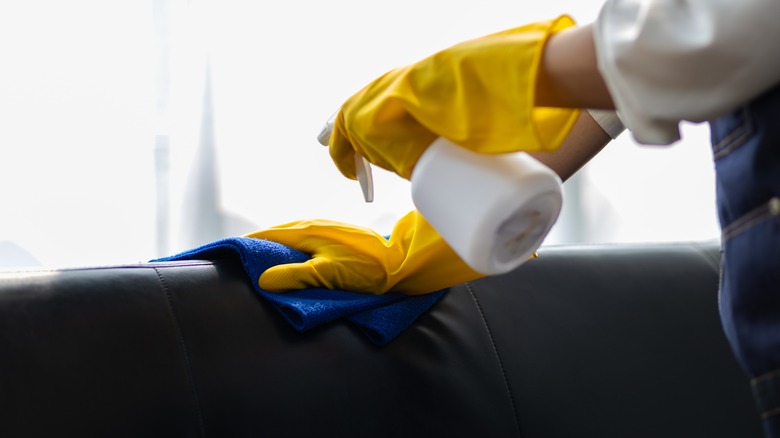This Household Product Will Clean Your Leather Furniture, But Be Careful
Leather furniture can be tricky to clean, especially when you're dealing with mold or stubborn stains. This material is sensitive to certain cleaning agents and can easily crack or fade in color when exposed to harsh chemicals. Even a damp washcloth could ruin your leather furniture due to the varying pH levels of tap water. One option is to use denatured alcohol, but you should still exercise caution and do a patch test first.
Essentially, denatured alcohol is a type of alcohol with toxic elements mixed in, so it's not okay for drinking but can be useful for cleaning. It's usually ethanol and its possible additives include gasoline, benzene, acetone, or methanol, but not all of them at once. As a cleaning agent, it's particularly effective against grease stains, mold, and mildew. It also has antibacterial properties and can be used to disinfect surfaces.
Denatured alcohol is also a common ingredient in hand sanitizers, cosmetics, and laundry products. Since it's safe for your skin, it can be safely used on leather furniture, too. But even so, it may not work for all types of leather and, in some cases, can make things worse.
Clean mold off leather furniture with denatured alcohol
Excess moisture, poor ventilation, or direct water damage can cause mold growth on leather furniture. For example, a leather couch that has been kept in the basement for months may develop mold and mildew because of the high humidity. Before you reach for harsh chemicals, try cleaning your sofa with denatured alcohol. First, open the windows to make sure the room is properly ventilated. Next, apply a few drops of denatured alcohol to an inconspicuous area of the leather (e.g., the back of your couch). Wait a few minutes, then check it for discoloration, cracks, or other signs of damage.
If everything looks good, apply denatured alcohol to a makeup remover pad or soft cloth. Gently dab the affected area, then step away for two or three minutes. After that, use a clean, dry cloth to blot the treated area and remove excess moisture. Repeat these steps if the mold (or stain) is still there. Once your sofa is clean and dry, apply a leather conditioner to moisturize and protect the fabric. WD-40 will do the trick, too.
As a note of caution, don't use denatured alcohol on suede or dyed leather because it could lead to discoloration. Additionally, these materials are more porous than other types of leather and, therefore, can absorb alcohol, which may affect their color and texture. There are safer ways to clean your suede couch, such as using a Magic Eraser or baking soda.

